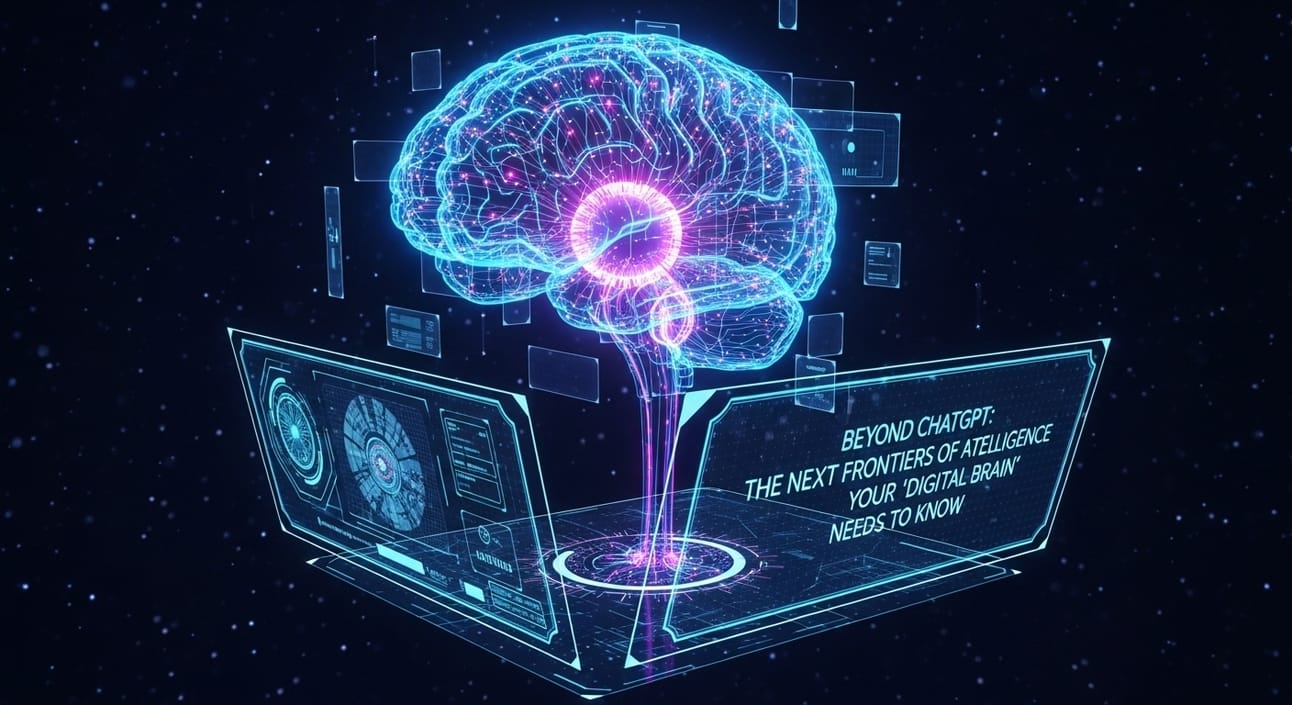- Digital Brain
- Posts
- Beyond ChatGPT: The Next Frontiers of Artificial Intelligence Your "Digital Brain" Needs to Know
Beyond ChatGPT: The Next Frontiers of Artificial Intelligence Your "Digital Brain" Needs to Know

Hello, Digital Brain reader!
In our last edition, we explored the quantum leap of AI, particularly focusing on the rise of multimodal models. While tools like ChatGPT have undeniably revolutionized how we interact with information and technology, they represent just one facet of the vast and rapidly expanding landscape of Artificial Intelligence. Today, we're going beyond the familiar to peek into the next frontiers of AI – the innovations that are quietly, or not so quietly, shaping what your "Digital Brain" will be capable of in the near future.
1. Embodied AI and Robotics: Bringing Intelligence to the Physical World
While large language models excel in the digital realm, a significant frontier lies in giving AI a physical presence. Embodied AI refers to intelligent systems that can perceive, act, and learn within the physical world. Think of advanced humanoid robots like Figure 01 or Boston Dynamics' Atlas, now powered by sophisticated AI models that allow them to perform complex tasks, learn from human demonstrations, and adapt to unstructured environments. This isn't just about automation; it's about creating intelligent agents that can collaborate with humans in factories, assist in homes, or even explore hazardous environments. The integration of advanced AI with robotics promises to bridge the gap between digital intelligence and physical dexterity.
2. Generative AI Beyond Text and Images: Crafting Worlds and Molecules
We've seen impressive generative AI for text (LLMs) and images (Stable Diffusion, Midjourney). The next wave is pushing generative capabilities into entirely new domains:
Generative AI for 3D Content: Creating realistic 3D models, environments, and animations from simple text prompts, revolutionizing game development, virtual reality, and industrial design.
Generative AI for Drug Discovery and Materials Science: AI models are now designing novel molecules with specific properties, accelerating the discovery of new drugs, catalysts, and advanced materials. This could drastically cut down research and development times in critical fields.
Generative AI for Code and Software Engineering: Beyond simple code completion, AI is generating entire software modules, debugging complex systems, and even designing software architectures, making programming more efficient and accessible.
3. AI for Scientific Discovery: Accelerating Breakthroughs
AI is becoming an indispensable partner in scientific research. From predicting protein structures (AlphaFold) to simulating complex physical phenomena, AI is accelerating the pace of discovery across disciplines. The next frontier involves AI systems that can not only analyze vast datasets but also formulate hypotheses, design experiments, and even operate laboratory equipment autonomously. This "AI Scientist" paradigm promises to unlock breakthroughs in fields like climate science, astrophysics, and fundamental physics at an unprecedented rate.
4. Personalized and Adaptive AI: The Hyper-Individualized Experience
While current AI offers some personalization, the next step is truly adaptive AI that learns and evolves with each individual user in real-time. Imagine AI assistants that understand your unique cognitive patterns, emotional states, and long-term goals, providing truly bespoke support for learning, productivity, and well-being. This requires AI that can learn continuously from subtle cues, anticipate needs, and offer proactive, context-aware assistance, making technology feel less like a tool and more like an intuitive extension of yourself.
Navigating the Future with Your "Digital Brain"
These frontiers are not without their challenges. Ethical considerations around job displacement, autonomous decision-making, bias in generated content, and the sheer energy consumption of advanced AI models remain paramount. However, understanding these emerging areas is crucial for anyone looking to stay ahead in the rapidly evolving tech landscape.
At Digital Brain, we are committed to bringing you these insights, helping you understand not just what AI can do today, but what it promises for tomorrow. The journey of intelligence, both artificial and human, is just beginning.
Stay curious, and see you in the next edition!
Sincerely,
The Digital Brain Team